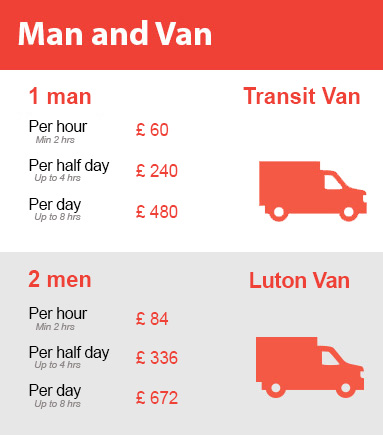The Art of Moving a Piano and the Importance of Hiring Experts
Posted on 23/05/2025
The Art of Moving a Piano and the Importance of Hiring Experts
When it comes to relocating a piano, many people underestimate the complexity involved. Pianos are intricate, heavy, and delicate instruments--improper handling can lead to costly damage or even personal injury. This is why understanding the art of piano relocation and the critical role of hiring professional piano movers is so essential. In this comprehensive guide, we'll delve into why pianos are challenging to move, the risks involved, expert techniques, as well as the undeniable benefits of hiring trained professionals.

Why Moving a Piano Is Different from Any Other Move
Moving household items is often a matter of strength, but shifting a piano requires skill, expertise, and precision. The following factors make piano transportation uniquely challenging:
- Weight and Size: Pianos can weigh anywhere from 300 to over 1,200 pounds, depending on their type.
- Shape and Fragility: Their uneven weight distribution, intricate components, and fragile structure make handling tricky.
- Valuable Investment: Pianos are a significant financial and sentimental investment for many families and institutions.
- Delicate Internal Mechanisms: Over 10,000 moving parts work in unison inside a piano, and damage to any of these can impact its performance.
Given these challenges, the process is far more involved than simply lifting heavy furniture. Expert piano relocation is truly an art requiring specialized knowledge and tools.
The Perils and Risks of DIY Piano Transport
Many people attempt to save money by moving their own pianos. However, piano moving is fraught with potential risks:
- Physical Injury: An untrained individual can seriously injure themselves due to the immense weight and awkward shape of pianos.
- Property Damage: Mishandling can easily result in damaged floors, walls, stairs, and doorways.
- Instrument Damage: Any jarring movement or improper support can cause costly harm to the piano's keys, strings, or internal action.
- Financial Costs: Repairing a piano or your home can far outweigh the cost of hiring a professional mover.
These perils highlight the importance of hiring professional piano movers, who are equipped both physically and technically to handle every aspect of the job.
Types of Pianos and Their Unique Moving Needs
There is a wide range of pianos, and each type presents its own set of challenges when moving:
- Upright Pianos: Though typically more compact, they are still heavy with uneven weight distribution.
- Grand Pianos: These are larger, heavier, and feature delicate, extending legs and pedals that require dismantling.
- Digital Pianos: While lighter, digital pianos with built-in speakers or cabinetry can be cumbersome.
Professional movers are adept at handling every piano variety, using specialized techniques to ensure safe transit.
Expert Techniques for Safe Piano Relocation
Experienced piano moving specialists utilize precise methods and equipment to safeguard your instrument and property:
- Piano Dollies and Straps: Movers use sturdy, purpose-built equipment to stabilize and transport pianos without putting the instrument or movers at risk.
- Padding and Wrapping: The piano is protected using thick pads and wraps, shielding it from scratches and dings during movement.
- Disassembly and Reassembly: For grand pianos, careful removal of the legs, pedals, and lyre reduces the risk of breakage or warping.
- Team Coordination: Proper lifting and communication among team members is critical when negotiating stairs, narrow hallways, or tight spaces.
- Vehicle Loading and Securing: Movers secure the piano inside the transport vehicle using straps and braces to prevent shifting during transit.
These techniques underline why the art of professional piano moving is best left to experts.
Piano Moving Equipment: What the Experts Use
Specialized tools are fundamental to safe piano transport:
- Piano Skid Board: A reinforced base used to support grand pianos during disassembly and transport.
- Heavy-Duty Dollies: These robust wheels support the heaviest pianos, allowing movement without damaging floors.
- Protective Covers and Blankets: Customized padding prevents surface scratches and absorbs shocks.
- Moving Straps and Harnesses: Distribute weight evenly, improving safety and control.
Critical Reasons to Hire Professional Piano Movers
The benefits of engaging piano moving experts extend well beyond simple convenience:
- Experience: Professional movers are trained to handle any piano, regardless of weight, size, or environment.
- Insurance: Most expert movers carry liability insurance, guaranteeing compensation for accidents or damage (though rare with professionals).
- Peace of Mind: You can rest assured knowing your priceless instrument is in the hands of people who value its condition and your safety.
- Efficiency: With the proper team and tools, professionals can move pianos quickly without sacrificing safety.
- Cost-Effectiveness: While hiring movers is an upfront expense, it often avoids far greater costs tied to injury or piano repairs.
The importance of hiring experts for piano moves cannot be overstated--especially for sentimental or high-value instruments.
The Process: How Professional Piano Movers Work
Understanding the step-by-step approach that professionals use can put your mind at ease:
- Assessment: Movers survey the piano's environment--measuring stairways, hallways, and doors to plan the best route.
- Preparation: The piano is wrapped and secured, then positioned for optimal movement.
- Dismantling (if necessary): For grand pianos, parts such as legs or lyre are removed and individually protected.
- Moving: Using coordinated lifting and steering, the team navigates obstacles and stairs safely.
- Transportation: The piano is loaded and secured for the journey, then delivered to the new location and re-assembled (if required).
This attention to detail ensures the instrument arrives unharmed and ready for performance.
Common Questions About Piano Moving
- Can all moving companies handle pianos? Not all movers are trained or equipped to handle such delicate, heavy items. It's crucial to choose a specialty piano moving service.
- How much does professional piano moving cost? Prices vary depending on the size, distance, location difficulty, and type of piano. However, the safety and insurance options justify the investment.
- Will movers tune the piano afterward? Vibrations during transport can affect tuning, but most movers do not include tuning services--schedule a professional piano tuner after your move.
How to Choose the Best Piano Moving Company
To guarantee a successful piano move, keep these selection criteria in mind:
- Expertise: Look for companies with specific experience in piano moving services.
- Licensed and Insured: Ensure they hold the necessary certifications and coverage for your protection.
- Equipment: Ask about the tools and vehicles used in their moving process.
- References and Reviews: Consult online reviews and ask for testimonials from past customers.
- Transparent Pricing: A reputable mover offers clear, upfront quotes--avoid companies with hidden fees.
Choosing a highly-rated piano relocation expert will give you confidence in the security of your instrument.
Preparing Your Piano for a Move
You can aid the moving process by following these steps:
- Clear Pathways: Remove rugs, furniture, or other obstacles along the movers' route.
- Inform Movers: Let them know about stairs, narrow halls, or other access challenges in advance.
- Secure Accessories: Remove music stands, sheet music, or decorative items from the piano.
- Document the Condition: Take photos of your piano before the move for insurance purposes.
Open communication and preparation help the movers work more efficiently and keep your instrument safe.

After the Move: Caring for Your Piano
Once your piano has arrived in its new home:
- Let It Acclimate: Allow your piano some time to adjust to the new room's temperature and humidity levels.
- Schedule a Tuning: Moving can affect the internal structure and pitch--book a professional tuner to keep your piano in top condition.
- Inspect for Damage: Check for any scratches, loose parts, or dents--report issues to your moving company if necessary.
Proper aftercare ensures your piano remains a prized centerpiece in your new space.
Conclusion: The Value of Professionalism in Piano Relocation
The art of moving a piano combines technical prowess with an appreciation for delicate, valuable music instruments. Entrusting this task to experts safeguards not only your piano's physical integrity but also your home and personal well-being. Remember, while a piano can appear robust, its true nature is one of incredible delicacy--a single mistake during a move can have lasting consequences.
Ultimately, hiring professional piano moving services grants you peace of mind, efficiency, and the comfort of knowing your treasured instrument will remain in perfect tune for years to come. When it's time to make a move, choose expertise--your piano deserves it.





